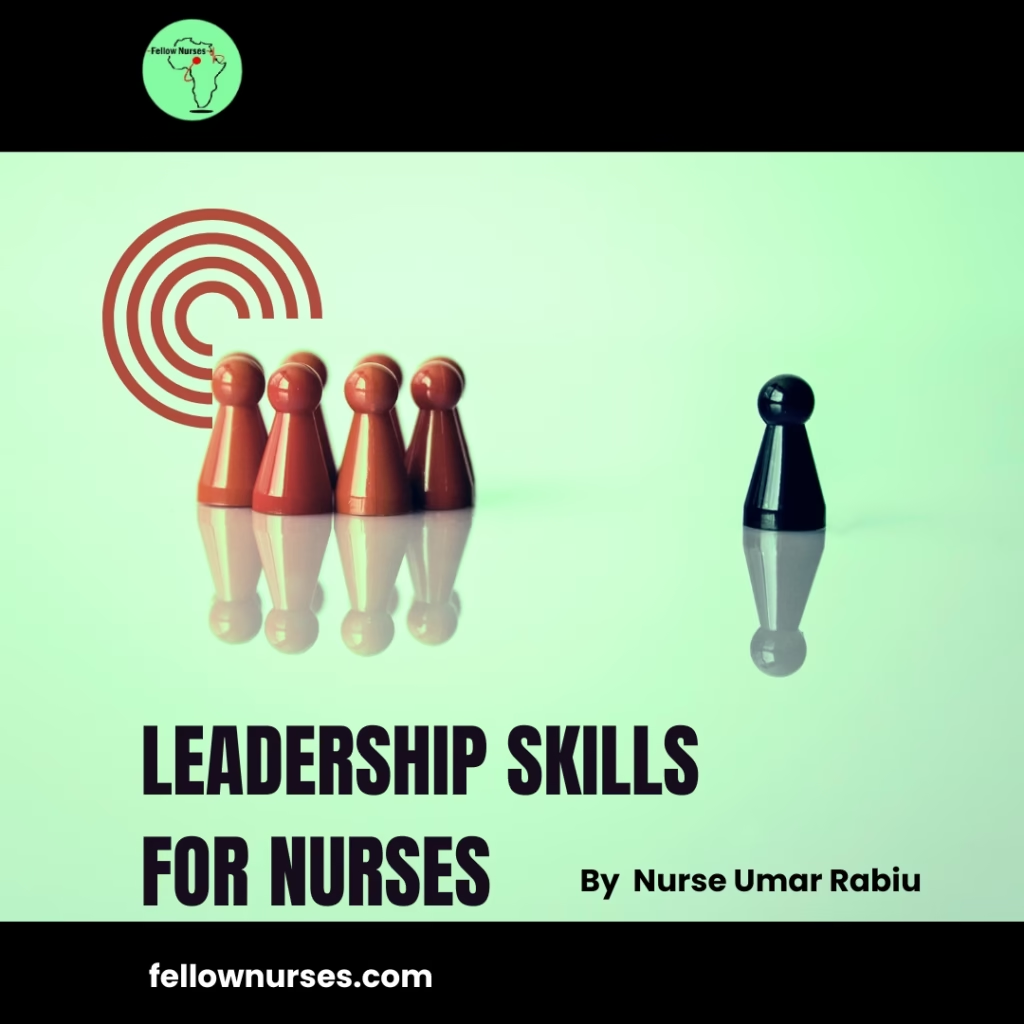Fellow Nurses Africa | Lagos Nigeria | 10 September 2025

By Nurse Umar Rabiu
As a nurse, I have come to realize that our role goes far beyond providing care at the bedside.
Nursing is about influencing, inspiring, and guiding others; patients, colleagues, and the upcoming generation of nurses. Leadership is not limited to holding administrative titles; it is a skill that every nurse must develop to mentor others, advocate for patients, and shape the future of our profession.
WHY LEADERSHIP MATTERS IN NURSING
For me, leadership in nursing is about making a difference at every level of care. Strong leadership allows us to:
- Improve patient outcomes by fostering teamwork and coordination.
- Advocate for changes that enhance healthcare delivery.
- Mentor younger nurses and students, ensuring the profession continues to grow.
- Strengthen interprofessional collaboration, reducing errors and improving efficiency.
- In today’s healthcare environment, quick decisions and compassion go hand in hand—and leadership is the bridge that connects clinical expertise with effective communication.
ESSENTIAL LEADERSHIP SKILLS EVERY NURSE MUST DEVELOP
1. Effective Communication I have learned that clear, empathetic communication is at the heart of nursing leadership. Whether it’s with patients, families, or colleagues, listening actively and speaking clearly can prevent misunderstandings and build trust.
2. Emotional Intelligence As leaders, we must be in tune with our own emotions and sensitive to the emotions of others. Emotional intelligence helps reduce conflict, strengthens teamwork, and builds meaningful relationships.
3. Decision-Making and Critical Thinking Nurses face urgent and complex situations daily. I believe that strong leaders are those who can make timely, evidence-based decisions while ensuring patient safety and wellbeing as the top priority.
4. Adaptability and Resilience Healthcare is always changing. I have seen how important it is for nurses to remain flexible and resilient—whether it’s adapting to new technology, managing emergencies, or handling staff shortages.
5. Delegation and Teamwork A true leader understands that no one can do everything alone. Delegating tasks appropriately not only increases efficiency but also helps others grow in their roles.
6. Mentorship and Coaching I see mentorship as one of the most powerful aspects of nursing leadership. By guiding younger nurses, sharing knowledge, and providing constructive feedback, we prepare the next generation to step confidently into the future.
MY CALL TO THE NEXT GENERATION OF NURSES
Leadership is not about power—it is about influence. As a nurse, I strive to be a role model of professionalism, compassion, and resilience. I encourage junior nurses to keep learning, to ask questions, and to embrace challenges as opportunities for growth.
FINAL THOUGHTS
The future of healthcare depends on strong nursing leadership. As I continue to grow in this profession, I am committed to building my leadership skills and helping others do the same. By guiding the next generation, we can ensure that nursing remains not only a profession of care but also a profession of influence and impacts.
CLOSING REFLECTION
As nurses, our leadership journey never truly ends; it evolves with every patient we care for and every challenge we overcome. Leadership is not only about what we achieve individually but also about the legacy we leave behind in those we inspire. If each of us commits to developing these skills, we will not only transform our workplaces but also strengthen the foundation of nursing for generations to come.
Written by Nurse Umar Rabiu
Fellow Nurses Africa is the independent voice of African nurses. We educate, inform and support the nursing profession.










